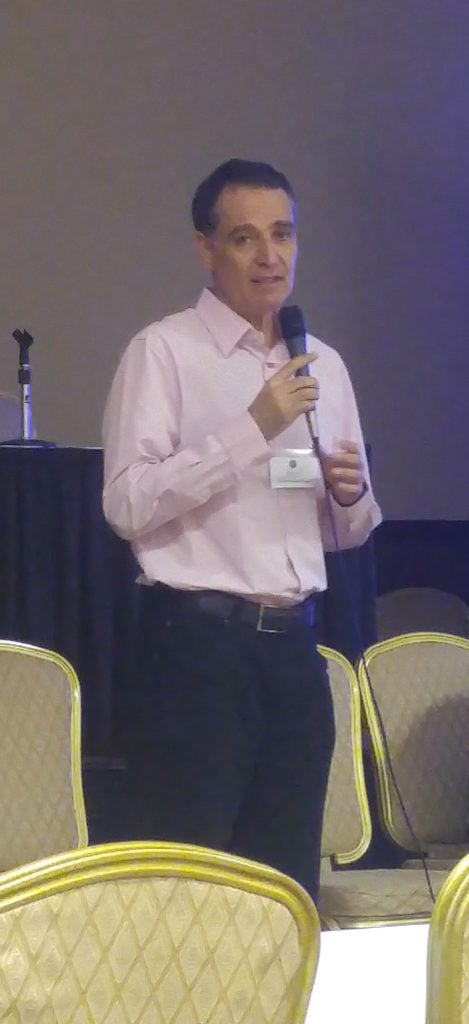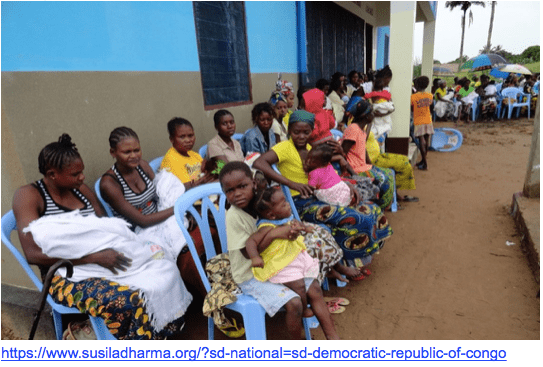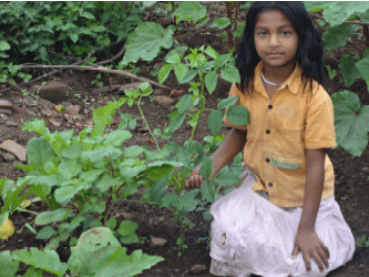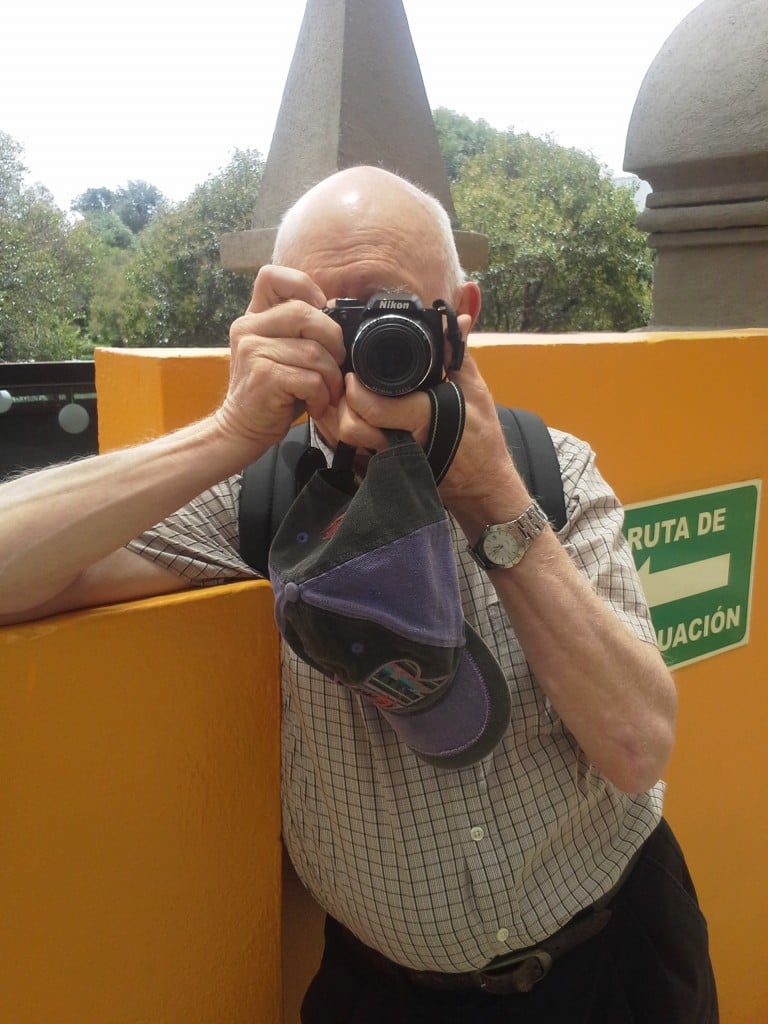SELECT NOTES FROM THE 2016 NATIONAL CONGRESS IN INDIANAPOLIS (By Hariana Chilstrom) (download as pdf)
There were many reports, including those from National Helpers and Kejiwan Counselors, Chairs of regional and local groups, National Committee members, delegate working parties, Susila Dharma USA, Subud Enterprise Services, and the Mohammed Subuh Foundation. Proposals brought to the congress were discussed in working groups and voted on by delegates.
Overall tone: several members mentioned the harmonious state of Subud now, as compared to 20 years ago. The theme of loving and helping people in and out of Subud was reiterated by national helpers, committee members and members involved in humanitarian projects.
Major concerns: need for more participation in Subud organization (from local committee work to fundraising for social projects), general fundraising, improving contact with regional/isolated members for Latihans and other Subud activities, financing purchase and maintenance of houses for Subud Centers, better communication between committees and members, and improving the selection process of board members and regional chairs and creating transition processes for new committee and board members.
NATIONAL HELPERS AND KEJIWAN COUNSELORS’ BRIEF REPORTS: (Alexandra Boyer, Michael Barber, Kenneth Clark, Benedict Hermann, Sophia Nicolletti and two Kejiwan counselors Lianne Card and Marius Harold) stressed the importance of their group traveling together as much as possible. Clark and Sophia see a strengthening of the Latihan as they travel around the country, recognizing the connections and strengths of Subud groups. Lianne and Marius have visited three out of six of the regions and were especially moved by what they learned in Veracruz: “We can learn from less economically rich countries that are less dependent on technology.” “I learned a lot…especially from the younger members. I was humbled.” Benedict synopsized Bapak’s words, “Loving other people will spread Subud.”
REGIONAL REPORTS focused primarily on: houses, land, finances, member numbers and migrations, social projects and fundraising, and reaching isolated members.
- Pacific Islands: the two small groups there have only a handful of members and welcome any mainlanders who want to relocate. They are currently focused on acquiring land for a Subud center.
- Subud South has three groups: Dallas, Houston and Fayetteville
- Subud Rocky Mountain’s membership, although dispersed, is growing, with members traveling and working well together. They are working on a humanitarian project. Purchasing property for Subud centers and discovering how the regional center can support these purchases are major activities.
- Subud PNW highlighted the three major centers with houses in the Pacific Northwest (Bellingham Skagit Valley, Portland, and Greater Seattle). Portland’s fund raising for Susila Dharma and its active welcoming of the LGBT community were reported. Seattle’s AirBnB success and the continuously refreshed Subud PNW newsletter were noted. Regional members are offered monthly phone ins for Latihans; Menucha was promoted as “the Subud event not to miss.”
- Subud Midwest’s singular committee member, Chair Simon Kern, said that although contributions from many regular donors have dropped off, the advent of PayPal has encouraged new donors. Their challenge is the geography of the region, with “members spread out to the edges, and what’s left moves to California.” Finding rental houses is a major focus, with land ownership a future target.
- Subud East Coast has regular committee and helper conference calls and weekly Latihan call-ins. Invited SUSA to have the next congress in Ashville. Most notable: Subud NY changed from non-profit charity to a church last week, which simplifies tax status and fundraising.
- Subud California’s Robert Mertens said that Subud California is very alive and friendly. He has been focusing on possibilities by asking members what would inspire them.
NATIONAL COMMITTEE REPORTS
Daniel Stralberg, Chair gave a synopsis of the accomplishments and challenges of National Committee for the last 2 years. Accomplishments included moving the national office to the Amani Center in Washington DC, website development, financial stabilization, archive work, and support of regions’ communications. Challenges included insufficient time to actually do the job, the need for more office staff, the need for more members to participate in the organization, funding (for Archives and other vital elements), and support for older members needing assistance to get to Latihan.Mary Wold, Vice Chair stressed the personal value of doing work for Subud and the need for transition assistance to help new chairs and other officers at all levels to understand and accomplish the duties of their jobs.Rosetta Navraez, Treasurer said that financial reports for 2015 and 2016 will be available on the Subud USA website. A couple of regions are struggling to meet their commitments, and individual contributions are down in general. “We are operating with a negative balance for 2016 as of today, but this is the general rule at this time of the year. The congresses make up a lot of this deficit and we will start another request to membership in the fourth quarter—between the two sources we usually make up the deficit.” Her hope is that the next treasurer will be able to contact and encourage enterprises to increase donations.Maria Wallington, Secretary said that her duties had expanded to include policies and procedures, and organizing and archiving old office records.
TESTING FOR NEW NATIONAL COMMITTEE—if you have never experienced this type of testing, you have missed an amazing process. Candidates first pretest to be sure the job is OK for their personal lives. After hearing candidate’s statements and being present during their testing, all members in the room vote for Chair and Vice Chair. The candidates at this congress were so qualified that three rounds of testing and voting were needed to choose the new Chair, Mary Wold. The new Vice Chair is Lucas Boladian.
BY-LAW CHANGE FOR ANTIDISCRIMINATION: because of some vagueness in the original text, the new wording made it crystal clear that everyone is welcome in Subud. Most notable is this passage: “Subud USA does not discriminate against any individual on the basis of race, color, religion, sex, sexual orientation, gender identity, national origin, age, disability, genetic information or parental status, nor does it condone any such discrimination by any of its members.”
WORKING PARTIES’ TOPICS AND SUGGESTIONS, all of which (unless noted) were passed by delegate votes:
- Timing of proposal submissions for national congresses–Amelia Williams proposed a 30 day deadline for receiving proposals for national congresses so that they could be sent out to all Subud members for review well before the congress. Members voted to send this proposal to the Board of Directors for approval.
- Board representation from regions vs directors at large–Daniel Stralberg. The current system of two-year terms for both the seven regional chairs and for four of the committee positions results in a lot of turnover. And regional chairs are limited in their effectiveness in Subud USA business because they need to manage their own regional business, using skills that are not always those needed for Subud USA board of directors. This group’s main recommendations were:
- Thedevelopmentofaprocesstoseparatetheselectionoftheregional representatives to the Subud USA Board of directors from the regional chair selections
- Afouryearphased-instaggeredtermforregionalboardmemberssothateach year a maximum of two regional directors will be new
- Thecreationofatimelinefortheproposedchanges
- Astipulationthatcandidatesforregionalboardpositionshavetimetodothework—a minimum of 5 hour a month plus time for one conference call a monthand one in-person board meeting per year
- Arequirementthatcandidateshaveexcellentcommunicationandinterpersonalskills, basic computer skills (email and internet) and relevant experience in Subud and related life experiences
• Engaging regional members—Mary Wold described the latest census reports that show movement of members from centers to surrounding regions and to new centers. Members need to be able to participate in Latihans with others, and to have opportunities to join other Subud activities.
The current situation:
–Even though isolated members are the responsibility of the local or center helpers, they are “often handed off to the Regional Helpers.”
–Communication from the Regional and National offices to the regional members difficult.
–Lack of personal contact or structured Latihans often results in these members losing touch with centers and Subud life in general; as a by-product, financial support for the center houses is reduced.
Potential solutions:
–Encourage National Helpers to “reinvigorate the local helper culture for outreach and support to the regional members”
–Develop Helpers Without Borders network
–Initiate and support mini gatherings and socials away from centers –Support Elderberry volunteers to identify and support elders Recommendation:
–Form an ad hoc sub-committee, with National helper representation, to report ongoing progress to the Board of Directors and provide progress report to the next national congress.
Subud ownership of Subud houses—Damanuri Alkaitis and John Schoenthaler
All Subud houses are owned by all Subud members, and concerns about how
to prevent unwanted sales, managing the houses, and financial support need
to be addressed. This 50 member working group recommended the
creation of a standing real estate committee to:
–Create an inventory of asset values of current Subud houses
–Prepare guidelines for Subud real estate ownership
–Create a list of benefits of Subud USA ownership of center houses
Several members (including Paul) volunteered for the standing real estate committee.
Selecting national chairs from regional chairs—Magnus Cheifetz
This group’s discussion changed its focus (from the title above) to the lack of interaction between center members and center committee. They stressed that this is a two-way responsibility–it’s the committee’s job to communicate to members what they are doing, and it’s the members’ responsibility to support the committees. “The current situation in centers reflects a huge disconnect between committee and members. We (members) don’t pay attention as soon as a new committee is chosen.” The committee’s job is worldly, not spiritual; its job is to focus on house support and operations, financial aspects (donations to local, regional and national), and other pragmatic realities. The need is for an active connection between the committee and members, to engender a feeling of all members participating in Subud life. No proposal was made.

7.9.16 – Elias Dumit, WSA CHair
WSA REPORT by Fernando Fatah Nieva and Hardwiin Blanchard
WSA is about “funding the future of Subud,” which in the coming year, requires $250,000 to fulfill the annual budget of $450,000 to $500,000. Many programs are supported by this fund, including International Helper travel, Bapak’s and Ibu’s talks, Archive work, and several social programs. How you can learn more and help:
- Current is the new e-magazine that has a link in the e-blasts and the Subud USA website. Be sure Subud USA has your correct email and that the e- blasts are not ending up in the Twilight Zone of trash or spam.
- Donations can be made on the Subud.org website where you go the WSA home page to donate.MSF REPORT by Marston Gregory
MSF provides grants all over the world, mostly for partial funding of Subud houses, but also to support Internal Helper travel and archives. The bulk of funding comes from the estates of members who designated MSF as a beneficiary. It has a good website: http://www.msubuhfoundation.org/SYA and SESAfter 3 rounds of testing, Susannah Rosenthal was voted in as the new chair of SES. Elaine McCartin and Bakhtiar Bustillo were elected co-chairs of SYA.SDUSA, Susila Dharma USA, Chair Evan Padilla, http://susiladharmausa.org/Susila Dharma USA supports locally-initiated projects in the US and around the world. SDUSA is actively involved in the Congo and India. “We are planting seeds of the latihan world wide…I have a picture of a dark world with spots of light illuminating the darkness. This is the fruit of Susila Dharma. I believe this is the most important work ofSubud in the world today” (Evan). Several members discussed projects funded by SD and how members can contribute.
1. The Inner City Schools Project
Created by Hamidatun Karapetian, this program focuses on improving the lives of impoverished students in the LA area. These students are often homeless
and new to the US.
Hamidatun focuses on one school at a time, supplying school supplies, books, clothes, trips to the zoo and other items or experiences that social workers at each school ask for. By working closely with these social workers, Hamidatun can tailor her assistance to individual kids.
Evan had a story about one boy with a single set of clothes, who was asked what he wanted: a pair of Nikes. So Evan paid for a pair—the feeling he got from having done this made him wonder, “Who was the lucky one–him or me?”
Hamidatun has just received a 3rd year grant from SDUSA for an early childhood and elementary center. And, they created a 501c for her so she can realize her vision of doing this all over the country.
Donations to her Inner City Schools Project are now tax deductible. Individuals can give directly, or a center or region could combine funds and sponsor a school. http://susiladharmausa.org/inner-city-schools/
2. Building a community health network in the Congo.
The Congo has a very active Subud presence. Three new clinics (and a fourth planned) have been built with teamwork between SD Congo, local health authorities, local Subud members, and SDUSA.
This region is one of the most difficult places to live in the world–the average life expectancy is 47, due largely to malnutrition, lack of clean water and poor health care. And despite its enormous wealth from mining, little of it reaches communities in need. Country-wide corruption funnels mining profits to a few people at the top of local governments.
Before actually investing time and money in the Congo, SDUSA asked itself if it could be successful, given the corruption in the country. It was decided to build a clinic as a test site–Lemba Imbu. This clean and welcoming clinic (replacing one that had been in terrible condition) provides blood transfusions (cooled with refrigeration by solar panels), lab work and small surgeries. Members of the surrounding community of 26,000 actively support the center, which serves 300 patients a month.

https://www.susiladharma.org/?sd-national=sd-democratic-republic-of-congo
After the success of this clinic, a second, Nkandu III was built with even more community engagement, including local health workers. Each clinic has solar energy, backup generator, refrigerator for plasma and meds, and even a brick-making machine to control the quality of bricks for buildings. Sustainability and community involvement are hallmarks of these health centers. A third clinic was successfully built and operated with the help of local health authorities and the local community.
A fourth center became more than a wish when Tina Buchan of the Buchan Foundation asked SDUSA “What would you do with one million dollars?” This foundation is active in the Congo, having funded several sustainable projects there, and has an ongoing relationship with SDUSA. The result of their donation of 25% of the cost of this new center will be Kwilu Ngongo, which will serve a community of 26,000 people who previously had no health center. Although SD Germany donated the remaining 75%, there is still a need for $20,000 to monitor and supervise the project.
All of these health centers were scrupulously audited recently by SDUSA; the audit included scrutiny by an outside accountant. Everything was organized and corruption- free.
World-Wide cooperation for these 4 projects consisted of over a dozen organizations, including Subud Portland and SD Germany, Norway, Canada, Germany, Britain and USA. Evan: “We are going to be in the Congo for a long time, making a real difference.”
3. Children’s food garden in India, Anisha
Evan described this $40,000 external grant to fund a children’s kitchen garden project in a drought-stricken area of western India. “This is the first time that SDUSA has gotten money from an outside funder. This grant will fund the food garden project for three years. The students involved in this project are largely from the poorest classes; families and single women who often have no land of their own. These gardens have a ripple effect out into the community, and provide nutritional food for families that would otherwise have no fresh vegetables for several months of a typical year.
 A student in her school garden
A student in her school garden
To find out more about SDUSA (and make easy donations via paypal):
Donate to Susila Dharma USA
And if you shop on Amazon Smile, 0.5% of the cost of eligible items will go to SDUSA!
Fun Fundraising
Several members discussed ways to create fundraising events that are both socially engaging and profitable. “Having fun in group activities with your center members fosters creativity and learning.” Working as part of a team is critical to developing and manifesting activities for fund raising. “Giving is contagious, but have to find ways to encourage it. You have to find your gift, share it and then you will receive all you need. There are many distractions from this goal, but its important just to start doing things.”
Benedict Herrman described a Sacramento garage sale that made $1,500 this year, emphasizing the importance of just “looking and ask for stuff.” We forget how far a dollar goes in another part of the world. It takes $80 to send a child in Indonesia to school for a year, for instance.”
SES, Subud Enterprise Services, Lewis Olds, co-chair of Subud Enterprises USA with Matthew Clark and Susanna Rosenthal.
http://www.subudusa.org/SubudinAction/SubudEnterpriseServices.aspx
They described one enterprise and two SES projects:
The Amani Center in Beltsville MD is making a profit with an ongoing cash flow, in some part from ongoing contributions. The demand for this gorgeous building makes it profitable. They are paying back their loans from the rental income. The real need the center needs is someone to actually take over the rental business. So anyone who wants to move to dc to take this over is very welcome.
http://www.subudusa.org/topNav/MembersPage/Blog/Posts/tabid/504/ID/146/Ama ni-Center-News.aspx
Subud Houses, Susanna Rosenthal
The goal of the SES website project is to link all the centers. Take a look at the map at www.subudcenters.com, which probably shows about 95% of the Subud houses in the USA. It has house locations, Latihan times, contact persons, and can link to center websites, to centerprise websites and to newsletters. It will soon include international Subud house information.
SubudConnects, Lewis Olds
Liked Linked-in, this site aims to connect. The goal is for Subud Professionals, and all Subud members, to share their businesses and/or their avocations and interests. “It will be internet-centric to connect businesses and professionals and expanded to anyone who wants to share a hobby or interest (which may lead to an enterprise, friendship, etc.).” Its aim is to be a database of expertise, listed by individuals, centers, locations, fields of expertise, and interests. There are people in Subud who have skills and talents that are not known by other members because they have never been asked to share this information. This could be a tool for startup funding, expanding markets, and creating friendships. This is not just a USA thing and will need to be global in its reach.
http://www.subudusa.org/topNav/MembersPage/Blog/Posts/tabid/504/ID/203/SES- USA-News-Flash-SubudConnects-Demo-at-Congress.aspx




 A student in her school garden
A student in her school garden